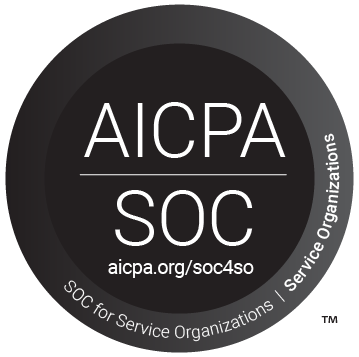Pramod John, CEO of VIVIO Health, discusses issues with drug pricing and competition in the pharmaceutical industry. He talks about how the current system incentivizes higher spending on healthcare rather than better outcomes, and how lack of transparency and access to data prevents true competition.
[00:00:15] Introduces VIVIO Health mission[00:02:07] Background and improving healthcare
[00:05:40] US overspends on drugs
[00:08:39] Public benefit corporation
[00:12:11] Rebates misalign incentives
[00:17:29] FDA approves ineffective drugs
[00:24:15] FDA efficacy vs. effectiveness
[00:29:47] Health insurance exchanges
[00:33:03] Humira lacks competition
[00:40:51] Lower cost Humira biosimilars
[00:44:38] Employers overpay despite alternatives
[00:47:53] Consultants have misaligned incentives
[00:51:46] Importance of fiduciary duty
[00:53:39] Data access drives competition
[00:55:33] Similar issues in other industries
[00:57:31] Ask doctors for data on treatments
Listen to the full podcast at: https://www.bizofpharmpod.com/exposing-the-hidden-costs-behind-prescriptions-pramod-john-vivio-health/
The root cause: an anti-competitive PBM model
In a free and fair market, the drug with the best outcomes data for each patient at the best price would win. Humira has been on the market for so long that its patents have expired and biosimilars have been available to 96% of the world’s population outside of the U.S. for years. Humira is not the best at anything; it is just one of many inflammatory drugs with average clinical data. As proven in clinical trials, different drugs work for different people. For instance, in rheumatoid arthritis (RA) trials, only 10% of those taking Humira achieved a great response (ACR 70 score), while 76% achieved a mediocre to no response. Fewer than 25% of patients receive a good response from the best-selling drug of all time.Read the full article at: https://www.benefitspro.com/2023/05/04/why-biosimilars-will-fail-and-what-we-can-do-about-it/
“It’s the law unintended consequences,” Pramod John, Ph.D., chief executive officer of Vivio Health. “The ACA’s intent was not that providers now can charge whatever they wanted for service, whether a drug manufacturer or hospital. It was trying to protect a member could have a million dollar out of pocket costs in a year. This is when we started to see expansion of drug pricing because now with out-of-pockets limits, it doesn’t matter whether a drug costs $6,000 or $600,000.”
Pharmaceutical manufacturers, John said, started offering copay cards after high-deductible plans were launched. “Now a drug manufacturer can arbitrarily raise the price of a drug or remove all pricing sensitivity for the cost of the drug by paying patients’ copays and deductibles.”
Ultimately, it’s a steering mechanism, he said. “Copay cards set up economic incentives that favor the wrong behavior,” John said. “We’ve removed pricing sensitivity for patients and incentivized providers to be able to jack up the price of goods and services.”
Read the full article at: https://www.formularywatch.com/view/patients-often-lose-in-the-battle-between-pharma-and-pbmsLearning Objectives:
- Kevin Knopf, MD, VIVIO Director of Clinical Innovation is on this panel on the current state of affairs for the global and US oncology biosimilar market.
- Identify existing and/or anticipated barriers to adoption of biosimilars from various stakeholders
(payor, provider, c-suite, community) - Discuss strategies and best practice solutions to help optimize biosimilar adoption
- Describe current and future policies or regulations impacting biosimilar ecosystem
Strategies for Overcoming Existing or Anticipated Barriers
Panel Discussion:
• Academic Health System Perspective
• Community Cancer Center Perspective
• Payer Perspective
Panelists: Kevin Knopf, MD, Kathy Oubre, MS, Desiree Otenti, MNS
CHG Healthcare and VIVIO Health Inc tackle the perfect storm of challenges when it comes to specialty pharmacy: out-of-control costs, lack of clinical evidence, and limited use of outcomes data.
Back in 2016, benefits staff at CHG Healthcare found a $174K charge in the monthly claims spend report. It wasn’t a mistake; it was the actual price for a specialty drug being used to treat a rare medical condition. Forecasting further costs without evidence of effectiveness, CHG Healthcare partnered with VIVIO Health Inc. to implement a specialty drug carve-out plan that covers both pharmacy and medical benefit drugs. Since 2017, CHG Healthcare has saved a net $4.4M through the program even with zero out-of-pocket costs for plan participants paying for specialty medications. Hear directly from Anne Hopkins, Director of Benefits and Wellness at CHG Healthcare, and Pramod John, CEO & Founder of VIVIO Health Inc., on how a focus on outcomes and individualized care can lead to savings.
Cutting Costs: CHG Healthcare Carves Out Specialty Pharmacy – Catalyst for Payment Reform (catalyze.org)
This episode of The ShiftShapers Podcast is called “Target and Tame the Drug Spend Monster” with Pramod John, Founder and CEO at VIVIO Health. They discuss the changing nature of specialty drugs as adjuvant therapies and the skyrocketing costs that come with it.
What You’ll Learn From this Episode:
03:31 Growth of specialty drugs & adjuvant therapies
06:16 TNF inhibitors, Humira biosims & AbbVie’s threat to litigate
13:25 Why do Americans pay more for specialty drugs?
19:29 Standing up against unfair pricing
Ep #317: Target and Tame the Drug Spend Monster – With Pramod John – ShiftShapers Online
In recent years, Dean Foods has been besieged by surging healthcare costs, with specialty drugs being a key cost driver. Not having expert knowledge about specialty drugs, the company, in some cases, had been unknowingly paying for the inappropriate utilization of these types of products. Rather than hoping its participation in a pharmacy benefit collective would throttle its rapidly increasing specialty spend, Dean Foods took the bull by the horns and chose to better manage and achieve higher value from this healthcare category.
CLICK to read:
https://www.viviohealth.com/wp-content/uploads/2020/08/VIVIO-Biosimilars-Case-Study-202008.pdf
What is causing prescription drug costs to keep rising? Come find out in this podcast in which Pramod John, the CEO of VIVIOHealth, starts talking at around 36:50 in the program.
https://www.commonwealthclub.org/events/archive/podcast/secret-behind-high-drug-costs
You may be surprised to learn some things that are contrary to what you may think are true about your doctor’s knowledge of prescriptions and the FDA’s job when it comes to approving medications.

